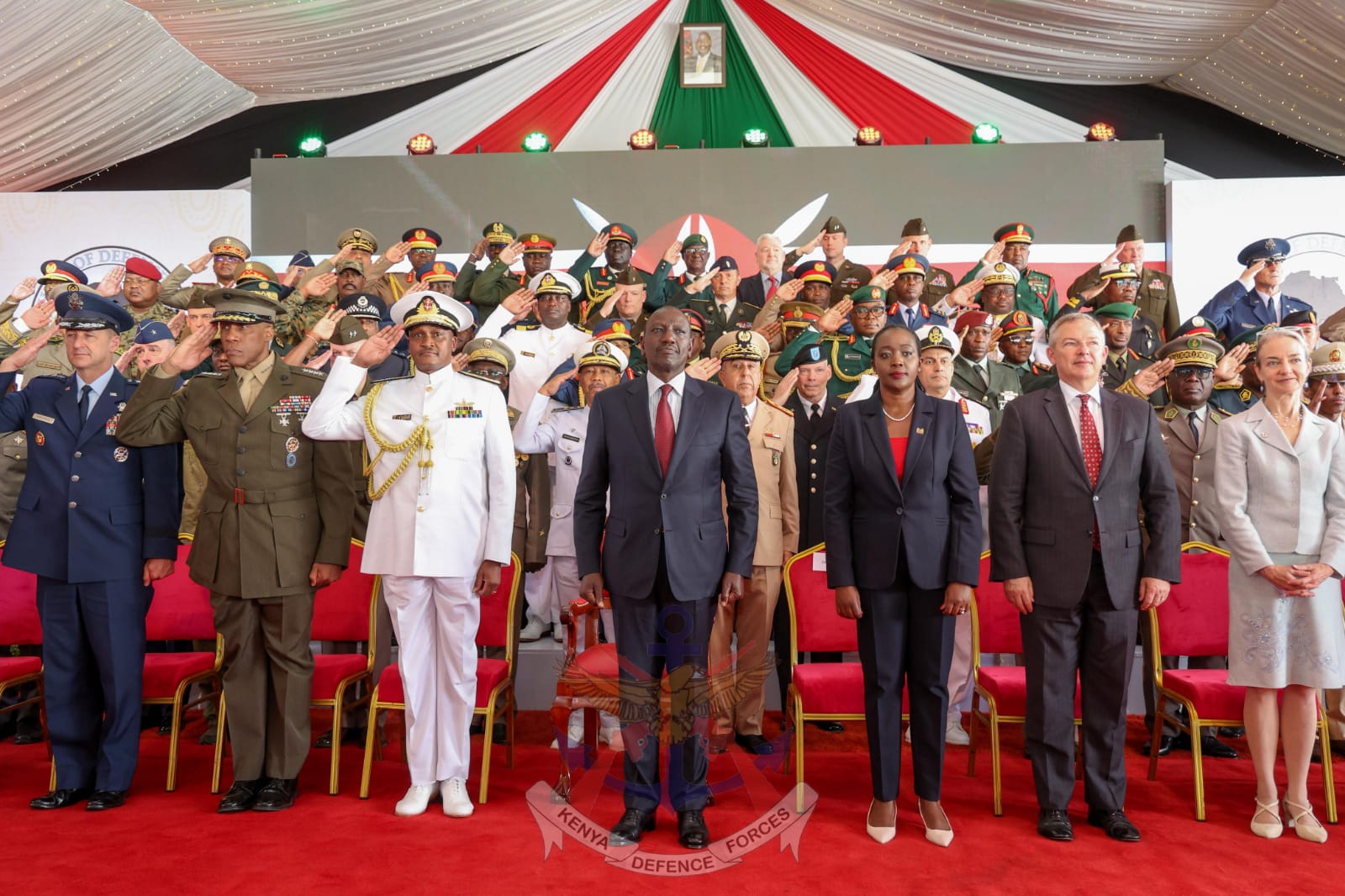

The US maintains African states and Europe
must share the funding responsibility for the African Union Support and
Stabilisation Mission in Somalia.
Responding to a question on the funding by the
Star, Commander of the US Africa Command, General Michael Langley said African
states must take responsibility for their own security — insisting on “burden
sharing”.
“As resources are rebalanced globally, it is
essential that all partners around the world – Africa included – take more
ownership in their regional and continental security”.
“I know that the AU and the UN are working to
solve these problems, but from a security perspective and more operational
perspective that I bring, we do wish for the sustainability of long-term
stability in Somalia. The US supports Somalia on building Somali security
capacity. That’s where I come in.
“We try to effect the shared responsibility
for a broad coalition so they – so the Somali National Army can achieve those
security objectives,” Gen Langley said after co-hosting with Kenya the Africa
Chiefs of Defense Conference 2025.
U.S. Senator Jim Risch (R-Idaho), chairman of
the Senate Foreign Relations Committee, has also commented on the matter,
saying America hasn’t refused to support the AU mission but want more shared
commitment.
“… we’re just insisting that Europe and Africa
pull their weight. Funding schemes like UNSCR 2719 [the UN Security Council
Resolution 2719 (2023)] let others dodge the bill and dump the cost on U.S.
taxpayers, while giving the UN a welcome distraction for its own failure,” he
said on Tuesday.
Senator Risch added the US is not abandoning
the American-trained Danab Brigade, an elite special operations unit within the
Somali National Army, or the fight against al-Shabaab.
“Support for the Danab started to phase out in
2024 after its leaders stole rations and Somalia’s government did nothing about
it. U.S. taxpayers shouldn’t keep funding corruption. The Danab is responsible
for these failures,” he added.
African leaders have pushed for funding for
AUSSOM, particularly through the UN assessed contributions. The UN Security
Council Resolution 2719 (2023) authorizes the funding of AU-led peace support
operations from UN assessed contributions, on a case-by-case basis, for a 75
per cent funding share.
President William Ruto and his Somali
counterpart Hassan Sheikh Mohamud in October last year called for additional
security funding ahead of the AUSSOM transition in January. They stressed the
necessity for AUSSOM to be adequately financed and called on stakeholders to
explore all possible funding avenues.
In April, regional leaders at the
Extra-Ordinary Summit of Troop Contributing Countries in Entebbe, Uganda,
deplored underfunding of AUSSOM and urged implementation of the UNSC Resolution
2719.
The support through the UN assessed
contributions extends to AU-led peace support operations and includes costs and
reimbursement of all categories of support as negotiated between the
troop-police contributing countries, the AU and the UN.
However, the US is blocking this, with Gen
Langley saying the recent ACHOD Conference offered an opportunity for “honest
conversations about burden sharing”.
Although Gen Langley said the AU and the UN
are working to solve the problems, he acknowledged “current funding challenges
at AUSSOM kind of underscore the difficulties” they face in Somalia.
“But I would just stay out of that realm, but
just talk about how, if they do solve these problems, it will be an enabler for
continued operations in Somali National Army’s fight against al-Shabaab.
So I know that the U.S. continues to work with Somali stakeholders, partners,
and neighbors to improve the collaboration to go against this formidable foe,”
he added.
On May 2, Senators Jim Risch, Ted Cruz
(R-Texas), and Rick Scott (R-Fla.), introduced the AUSSOM Funding Restriction
Act of 2025 to “safeguard U.S. taxpayer funds and hold the UN and African Union
(AU) accountable in African peace operations”.
Senator Risch said that at the UN, their European partners are looking to skirt
their financial commitments to AUSSOM by switching to a new imbalanced funding
mechanism that pushes the burden on Americans.
“We can’t let that stand. This bill will
prohibit US contributions to AUSSOM under this new funding scheme until the AU
and the UN can prove that they are using the funds they have responsibly and
prevent Americans from being locked into perpetually funding a broken system,”
Risch said.
On his part, Senator Cruz argued that AUSSOM
Restriction Act would safeguard American taxpayers’ cash and prevent it from
being spent in ways that don't advance America's national security interests.
Senator Scott echoed the remarks, saying the
US will not allow its tax dollars to be exploited by the UN, while their
partners refuse to pay their fair share, “much less for a mission that fails to
spend these dollars responsibly or transparently”.
They added that AU’s inability to meet the
eligibility criteria and funding conditions asked of the U.S shows a disregard
for the American taxpayer’s money.
The blame game comes at a time al Shabaab has
sustained attacks in various parts of Somalia amid a drawback of foreign
forces.













